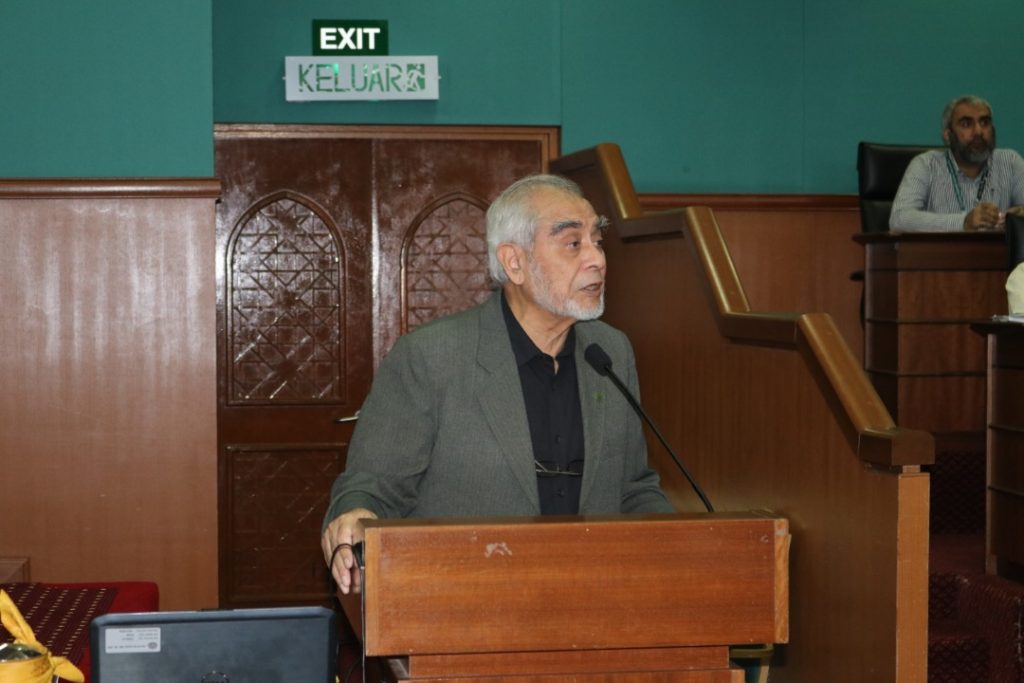By Iylia Marsya Iskandar and Amir Azmir
GOMBAK, 25 October 2019: œContemporary Muslims are seen to have developed a narrow view on the roles of shariah making it confined to only the Muslims, Prof. Dr. Anis Ahmad told the International Conference on Religion, Governance and Sustainable Development (ICRGSD) last week.
His speech on “The Roles of Objectives of Shariah in Governance and Sustainable Development” at the Senate Hall, Muhammad Abdul-Rauf Building, IIUM, was circulated to the audience.
œShariah, the divine law where its principles are universal and unchangeable, are in contrast to the widely spread global objectives that are not relevant for all cultures, Prof. Dr. Anis added.
He further explained that the Quran should always be referred to for a futuristic approach in regards to development as it is also divine, not constricted to space and time.
Prof. Dr. Anis unfolded that the objectives of the principles of shariah is to look after the rights of Allah and the environment and not merely as a punishment, which is a misconception of the contemporary Muslims.

In regards to technological development, he commented, œIts not really a big issue if artificial intelligence will be dominating but it should be under an ethical umbrella. The robots can take over but ethics, first and foremost, must prevail.
He further added, œWe shouldnt fully rely on the senior scholars of Islam but rather the young minds who are liberated from intellectual colonisation for advancement.
In Islam, it is advisable to excel in science and technology but Prof. Dr. Anis emphasized, œAll these should adhere to the shariah and lead to success in dunya and akhirah.
Prof. Dr. Anis Ahmad is currently the Vice-Chancellor of Riphah International University in Islamabad, Pakistan. He was the former Dean of the Kulliyyah of Islamic Revealed Knowledge and Human Sciences (KIRKHS), IIUM.
ICRGD, organised by KIRKHS, was a two-day conference (16 to 17 October) where researchers, academics and practitioners, actively engaged both in theoretical and practical aspects of religion, culture and governance, deliberated issues pertaining to sustainable development in promoting the 2030 Sustainable Development Goals by the United Nations. ***
